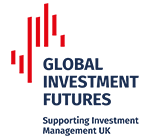Investors call for greater transparency on ethnic diversity on boards
Friday 9 October 2020
Investment managers are calling for greater transparency on ethnic diversity on boards as almost three-quarters of FTSE 100 companies failed to report the ethnic make-up of their boards in this year’s AGM season, according to data from the Investment Association (IA)*.
Investors have previously asked companies to include information on the ethnic make-up of their boards, alongside gender diversity, in their annual reports. With FTSE 100 boards expected to have at least one director from an ethnic minority background by 2021 under the Government-sponsored Parker Review, this lack of information is preventing investors from holding companies to account on their progress. Investors expect companies not just to state whether they meet the Parker Review targets but to disclose the percentage of the board that comes from an ethnic minority background.
Chris Cummings, Chief Executive of the Investment Association, said:
“FTSE 100 firms are falling far short of investors’ expectations when it comes to reporting the ethnic diversity of their boards. The Parker Review from earlier this year showed there is still significant progress to be made on improving the ethnic diversity of UK PLC boards and investors need more information to assess a company’s journey to meeting the Parker Review target. Transparency is key.
“We’ve seen good progress on gender diversity when companies have held up the mirror to themselves and listened to investors’ concerns. Companies now need to take urgent action and report on ethnic diversity on their boards. Those who fail to do so will find themselves under investors’ spotlight.”
FTSE-listed companies have, however, made good progress on increasing the number of women on their boards with the FTSE 350 now meeting the 33% gender diversity target set by the Hampton-Alexander Review in aggregate. Investment managers are keeping up the pressure on those still falling short, calling for companies that have not met the target to take action now.
This year, IVIS, the IA’s Institutional Voting Information Service, issued a ‘red-top’, its highest warning level, to companies with just one woman (or less) on their board, as well as to those with 20% or less women on their board or in their senior leadership teams (executive committee and their direct reports).
29 red-tops were handed out to FTSE 350 companies for a lack of board diversity. During 2020, all-male boards did fall to zero for the first time ever, however, this has since increased to one all-male board, highlighting the need for companies to focus on succession planning to maintain momentum on board diversity. The number of “one and done” boards, those with only a single female director, in the FTSE 350 has fallen from 74 at the end of 2018 to 16 now. In this year’s AGM season, a further 22 companies were also issued with a red-top for a lack of gender diversity in their senior leadership teams.
ENDS
Notes to Editors:
* Based on the 93 FTSE 100 companies with year-ends on or after 31 December 2019 which have held their AGM as of 30 September 2020.
For further information, please contact:
Katie Martin, Head of Communications: [email protected]
T: +44 (0)20 7269 4655
Helen Ayres, Communications Manager: [email protected]
T: +44 (0)20 7269 4620
David Parton, Communications Executive: [email protected]
T: +44 (0)20 7269 4625
IA press office: [email protected]
T: 020 7269 4696
About the Investment Association (IA):
- The IA champions UK investment management, supporting British savers, investors and businesses. Our 250 members manage £8.5 trillion of assets and the investment management industry supports 113,000 jobs across the UK.
- Our mission is to make investment better. Better for clients, so they achieve their financial goals. Better for companies, so they get the capital they need to grow. And better for the economy, so everyone prospers.
- Our purpose is to ensure investment managers are in the best possible position to:
- Build people’s resilience to financial adversity
- Help people achieve their financial aspirations
- Enable people to maintain a decent standard of living as they grow older
- Contribute to economic growth through the efficient allocation of capital.
- The money our members manage is in a wide variety of investment vehicles including authorised investment funds, pension funds and stocks and shares ISAs.
- The UK is the second largest investment management centre in the world, after the US and manages 37% of all assets managed in Europe.






